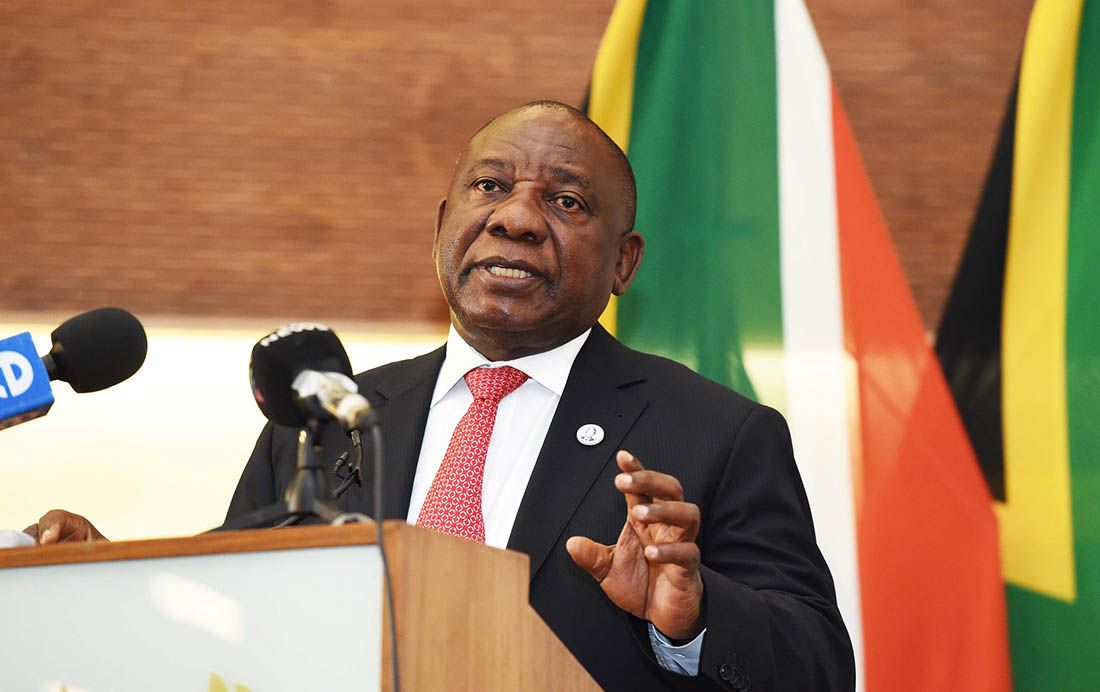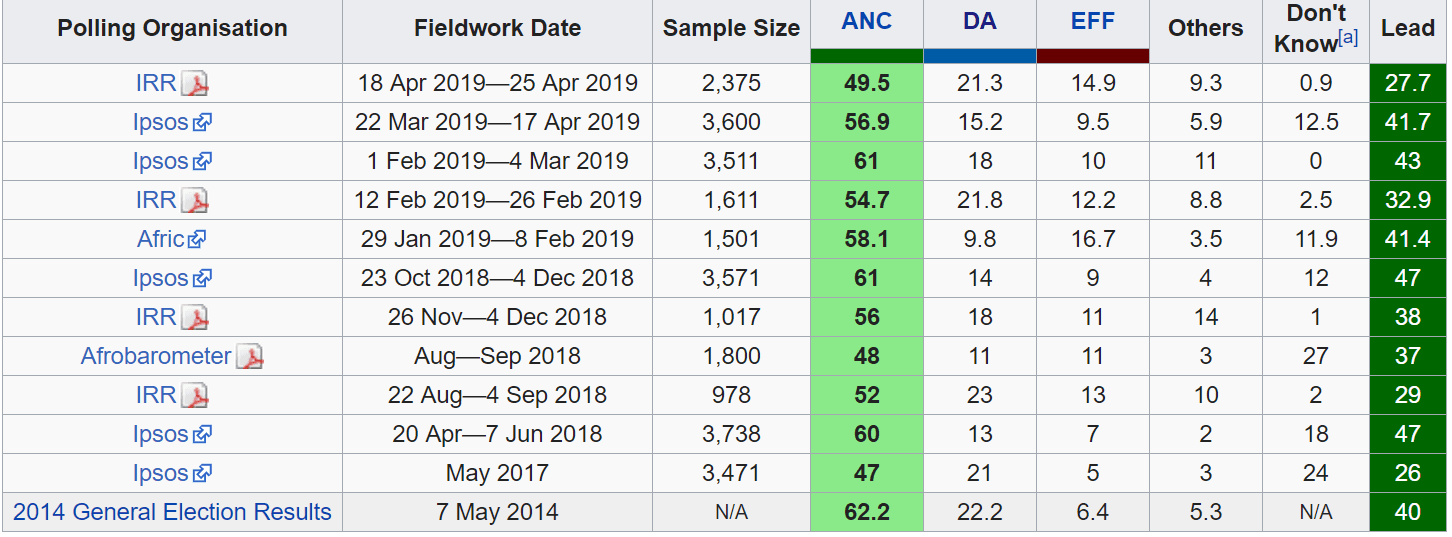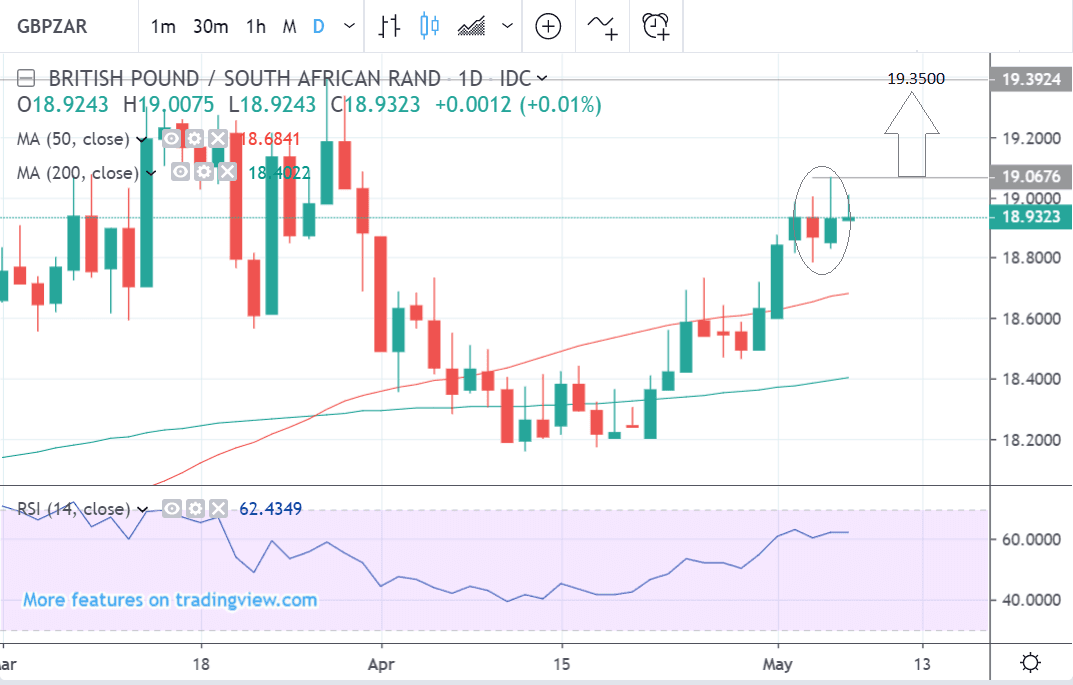The South African Rand Could Surge on +60% Win for the ANC

Above: President Cyril Ramaphosa. Image © Government of South Africa, reproduced under CC licensing
- Rand likely to be moved by general election on Wednesday
- Ruling ANC party tipped to win; size of majority key
- Reform follow-through after election also important
The South African elections are likely to be the most important driver for the Rand over coming days with Wednesday's vote likely to see the incumbent ANC party re-elected.
A strong win is tipped to be positive for the currency.
The markets like President Cyril Ramaphosa’s pro-reform agenda so if his party makes a convincing win the President would be inclined to make any necessary difficult decisions and cast aside the pressures from populist forces.
The date to watch is probably Friday, May 10 when the votes will have been counted and the results published.
Simon Harvey, FX Market Analyst at Monex Europe says the extent of the win, and therefore Ramaphosa’s mandate, could be a key factor in deciding how positive the outcome will be for Rand exchange rates.
A win of over 60% will be necessary to see South African assets rally significantly, according to Harvey, who says such a result would then give Ramaphosa the power to reshuffle his cabinet and push through the necessary economic reforms, despite some internal resistance.
The opposite is also true: a result of below 60% could actually weaken the Rand.
“Short-term downside for the rand also comes in the form of an outcome under the 60% range, which would highlight a significant decline in the party’s popularity under Ramaphosa’s leadership. This could fuel internal conflict and threaten the prospects of proposed reforms – which range from loosening visa restrictions to restructuring state-owned entities,” says Harvey.
Recent polls do not make it look likely the ANC will win a majority above 60%. Only 1 out of the 5 polls held in 2019 indicated a win of over 60% for the ANC.
Even if Ramaphosa wins the required watershed 60% share, keeping the gains could be problematic, as there is a risk investors may be disappointed by the actual reforms which are implemented if they fall short of expectations.
The importance of follow-through is highlighted by the course of the Brazilian Real. The Real rallied after President Bolsonaro was elected because markets also liked his reform agenda, however, the currency fell back down when it became apparent he couldn't actually implement reforms in line with expectations.
For South Africa, the main areas of reform investors will be watching follow-through for are, “the composition of the future cabinet, Eskom’s labour reforms, and the opening of South Africa’s economy to international investors. Key appointments to the cabinet include the Minister of Energy, Minister of Trade and Industry, and Minerals and Energy Minister,” says Harvey.
Monex forecast the Rand to rally and push USD/ZAR down to 14.00 versus the Dollar in the short-term, i.e. over a one-month horizon.
“We retain our bullish stance on ZAR over the short-term horizon, expecting USD/ZAR to test the 14.00 handle in the coming month should a strong mandate be delivered” says Harvey.
Analysts at Standard Bank expect the Rand to rally to 13.40 by year-end. They forecast an ANC election majority of 53-54%, which would be in line with their-base case scenario for the ruling party to retain a sufficient majority around 54-57%.
Such a majority, while falling short of 60%, should be sufficient for Ramaphosa to push through the reforms required to support a rally in the Rand.
Yet, Standard Bank’s overall view on the currency is that the SA Rand is undervalued, partly because of election risk, which once removed, will probably allow a drift higher towards fair value.
Analysts at ING Bank also expects the elections to result in a positive boost for the SA Rand, yet it too is skeptical about follow-through, seeing the need for party-unity, union support, and Ramaphosa's slim win over Dlamini-Zuma (2,440 vs 2,261 votes) in the presidential election as potential obstacles placing limits on reform.
"One of Ramaphosa's reform pledges, when he came to power, was to root out of corruption both within the party and on the boards of state-owned enterprises (SOE) and although this has been implemented to a certain extent, “some party members inflicted in graft allegations remain in powerful positions while there is also a risk that more reputable figures are affected in some way (notably with ex-FinMin Nhlanhla Nene stepping down in October 2018),” says Trieu Phem, an analyst at ING.
Reforms intended to cut the government’s wage bill as well as plans to carve up embattled state-owned utility Eskom raise a potential conflict of interest as the trade unions, which also happen to be supporters and paymasters of the ANC, are dead against such reforms if they mean workers losing their jobs.
The contentious and daunting subject of ‘land reform’ is also a major risk factor both for the economy and the Rand. Although Ramaphosa pledged to support land reform he added careful qualifications saying there should be “no land grabs” and only if they didn’t damage output.
Elements within the party also want reforms to the SARB which could impact the Rand. One is for it be owned by the state and another is for it to include an employment mandate. Given such high unemployment in SA (27.1%), this would almost certainly lead to greater monetary easing and a weaker currency.
Pound in an Uptrend vs. The Rand
From a technical perspective, the Pound-to-SA-Rand rate remains in a short-term uptrend which began in mid-April.
Given the market adage that ‘the trend is your friend’ this uptrend is biased to extend, and a break above the 19.07 highs would probably confirm such a continuation, towards an eventual upside target at the March highs of 19.35.
The one reservation we have is the cluster of slightly bearish-looking candlesticks at the current highs (circled above). These suggest a possibility the trend could be about to reverse.
Another reservation is the tapering off of upwards momentum as indicated by the RSI momentum study in the lower pane, which is not rising as strongly as it used to and therefore signals a possible slackening off upside momentum. This sometimes also happens before a correction.
These negative indicators could support the more ZAR-positive short-term fundamental outlook on the back of an ANC majority win.
Time to move your money? Get 3-5% more currency than your bank would offer by using the services of foreign exchange specialists at RationalFX. A specialist broker can deliver you an exchange rate closer to the real market rate, thereby saving you substantial quantities of currency. Find out more here.
* Advertisement






